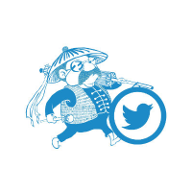









24 November 2016 by Roy Preece
There is always a concern that the original spirit of words may disappear when translated from one language to another. It may be difficult to find the word in one language which exactly expresses the meaning of another. The French use the same word, aimer, to mean both ‘to love’ and ‘to like’; similar ideas, but essentially different in degree. The correct English word must be decided by the context. The French word demander means ‘to ask’; if translated as ‘to demand’ it suggests a forceful and somewhat bad mannered request. In English life, to say ‘I want a cup of tea’ is rather ‘demanding’ and not polite; it should be ‘I would like a cup of tea please’ or just ‘I’d like a cup of tea’. Some words may be untranslatable. It is said the French have no word for the English ‘fair-play’. They might translate this as ‘justice’, but we all know that strict justice can be unfair. If these misunderstandings can arise between the two rather similar languages French and English, or even within a language, how much more likely are they between such different languages as Chinese and English, especially if more abstract ideas are involved.

Words are ideas, and ideas are not always the same across cultures. To take an apparently concrete example: in Western legends and culture, dragons are almost invariably evil and troublesome creatures. But in Chinese culture dragons are symbols of excellent qualities such as wisdom, courage and endurance. Again, when we were translating The Dragon Princess, it was easy to assume from an English point of view that the hero was a paradigm of a ‘perfect knight‘ character who treated the heroine in a chivalric manner. But no! It seems that according to the Chinese culture of the time he was still a male chauvinist, even though he rescued the princess and married her. This realisation of course affected the choice of English words to be used in the translation. Although a dictionary may provide synonyms as a means of defining a word it has been said there are no true synonyms in English and each has a subtly different meaning depending on context.

Therefore we feel that a good translation ideally is produced by a team or partnership from both cultures, communicating intensively and patiently with each other. Sometimes it is difficult even for a Chinese person to know just what is meant by ancient writing. This happens in English too. One of the earliest Anglo-Saxon poems, The Seafarer, can have two interpretations in modern English, quite different in character, and no one can say just what is correct. A competent literal translation, insofar that one is possible at all, may lack an attractive style and may miss important nuances. There is no perfect solution to resolve this problem. Writers who are sensible with the use of words and are happy to seek the meanings of words between languages by checking dictionaries and academic records with persistent effort make a great difference for the translating work, but constant discussions between two cultures is the most efficient way to keep the words alive. This is time-consuming.
Thus a perfect translation is not possible; good translations may range from technical correctness to almost new works. Alexander Pope’s highly successful translation of Homer’s classical story of the Trojan War was described by one critic as having ‘every merit of a translation except truth to the original’. In our children's illustrated story books, we aim to balance readability with truth to the spirit and meaning of the original stories, using free translation with authentic illustrations to present the meanings of Chinese idioms and to bring people into Chinese culture. We like to keep Chinese names where possible to give atmosphere to the stories, using Chinese pinyin to help non-Chinese speakers to pronounce Chinese names. But Chinese names are more than just strange sounds; they all have meanings and we like to explain these where this is important. For example the name of the famous historian, Sima Qian, literally means ‘Contol Horse Moves’ which suggests he may have started life as a horse tamer!